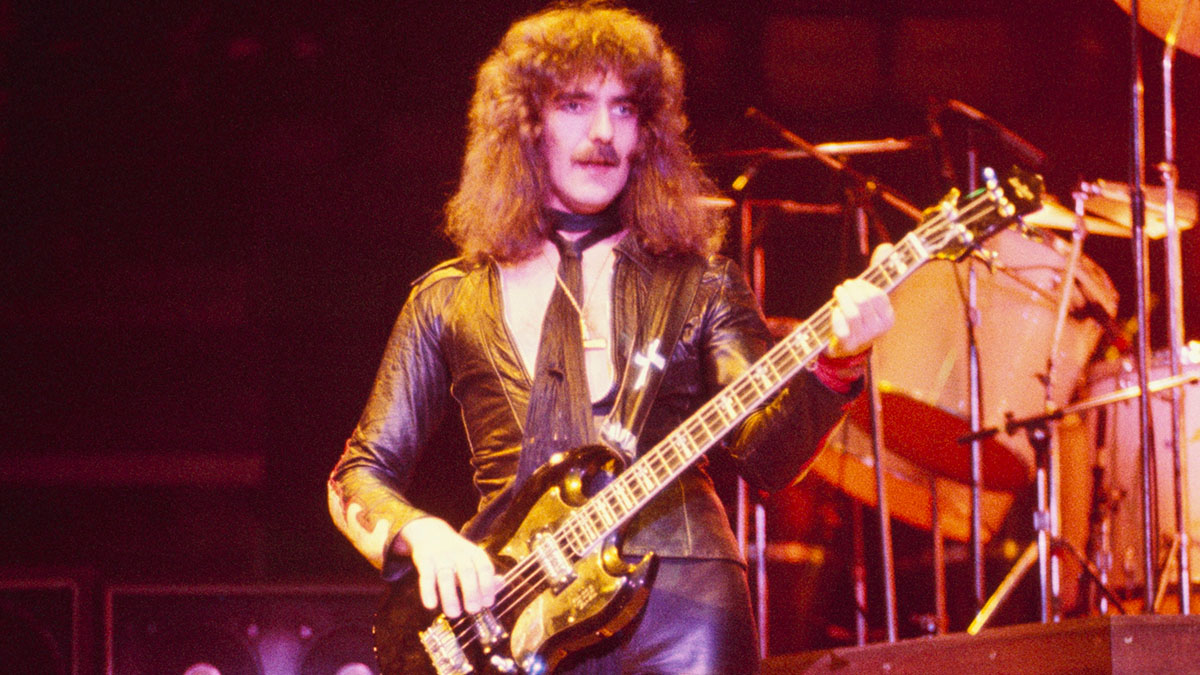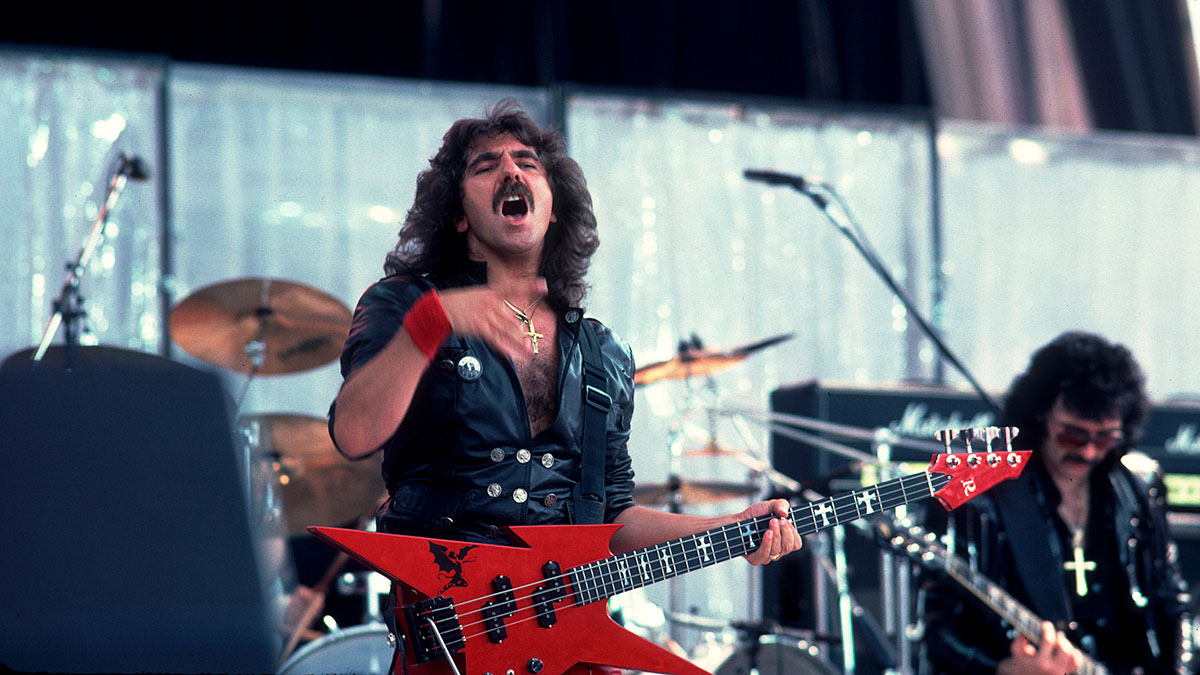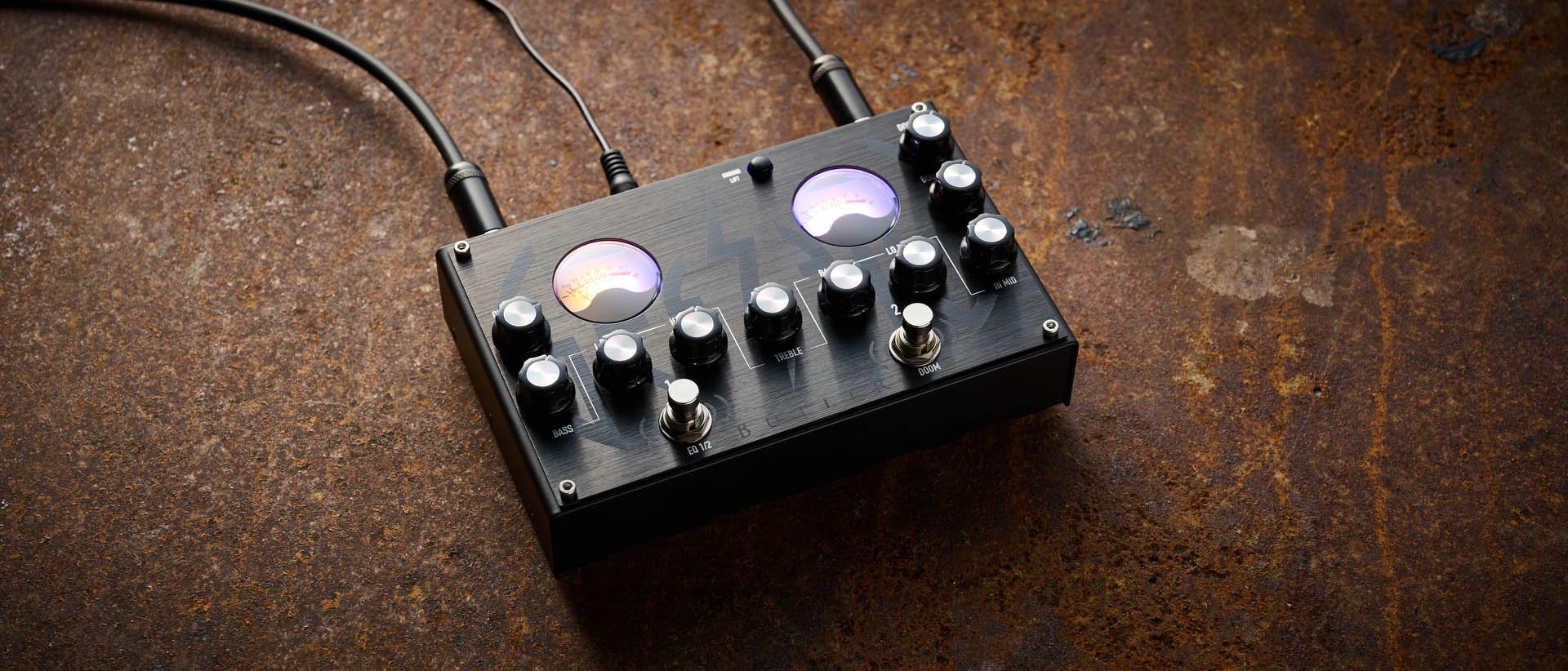Geezer Butler: "It was always magical playing with Tony. We never had to discuss anything – it just seemed to happen. To me, he’s the greatest guitarist ever"
The bass legend looks back on his time with Tony Iommi and Black Sabbath, shares his highlights from new solo boxset Manipulations of the Mind, and reveals why he's turning to six- and seven-string basses for future material

If you or I ever reach 72 years of age, we will no doubt be spending a lot of time ignoring everything that people tell us about bass guitars, and refusing to acknowledge anything other than the tried-and-trusted gear that we’ve been playing for the last 50 years.
Not so for the great Geezer Butler, or Terry as no-one calls him, who – despite a long and productive career as a master of the low end – is still breaking down barriers in bass.
“I’ve just bought an Ibanez six-string bass, so I could play it like a guitar,” he tells us, “but then I progressed to a seven-string to have the full range, tuning the bottom string to B.”
He’s not merely noodling around on this beast, either. “I’ve come up with lots of different ideas,” he adds.
“I like having a few different things to experiment with, so I’ve recently acquired an array of different pedals and a box of goodies from IK Multimedia that I’ve yet to delve into. I’m in the process of moving house, which is a pain in the nether regions, so I haven’t had much time lately to fiddle about with everything... but I will when I’m settled into the new house.”
Butler’s new neighbors, whoever they may be, will not only be contending with the some monstrous sounds from the new seven-string: they’ll no doubt be treated to a whole universe of loud courtesy of Manipulations of the Mind, a three-album collection of the solo records he released during downtime with Black Sabbath.
The albums, Plastic Planet (1995), Black Science (’97), and Ohmwork (2005), come with a bonus disc of rare and largely unreleased material, and collectively represent something of a welcome step outside the day-job band, it appears.
All the latest guitar news, interviews, lessons, reviews, deals and more, direct to your inbox!
“All three albums were done with fun in mind,” he explains. “I felt totally free to do whatever I wanted to do – I didn’t have to repay vast advances from the record company, or have to think about selling hundreds of thousands of albums, or conforming to any preconceived ideas.”
Gear-wise, there’s a clear evolution through the albums, with Butler sticking to his old Sabbath bass gear for Plastic Planet.
“I used my old Fender P-Bass, that I used on the Paranoid (1970) and Master Of Reality (’71) albums, with an Ampeg amp through a 4x12 Marshall cab – but I think I played a Vigier bass on Black Science and a Lakland on Ohmwork, through an Ampeg Heritage amp and an 8x10 cab.”
These days, Lakland is his first call for bass guitars, and he also has a signature amp with Ashdown, the fearsome Head of Doom. The new Ibanez was borne of necessity, he explains. “Lakland is still my first-choice bass, but they don’t do seven-string basses, so Ibanez was readily available. I haven’t played Ibanez before, apart from the six-string bass, but I like the fact I can play them like a guitar.”
After so long as a touring bass player, Butler has suffered an unusual side-effect: “My fingers have been flattened after playing bass for more than 50 years, and ordinary guitars can be a problem for me, chord-wise, so the wide fretboard on the six- and seven-string basses allow me to play a variety of chords.”

Flattened fingers are normally the preserve of upright bass players, for whom spatulate fingertips are routine thanks to the extra pounds per square inch they need to leverage to get the job done, but it’s not something we often hear from electric players. In Butler’s case, it may have something to do with the sheer force with which he attacks his bass strings.
Last time we spoke to him he explained, “I still hit them extremely hard. I’ve no idea where I got that from, it’s my natural style. I do get excited playing live: when I’m rehearsing I don’t hit the strings anywhere near as hard as that, which gives the soundman headaches. I’ve taught myself to back off a bit.”
Look back through Black Sabbath’s career – which, let us not forget, effectively kicked off in 1969 after stints as the Polka Tulk Blues Band and Earth – and you’ll see Butler smacking the life out of a wide range of basses, Precisions, Jaydees, Dan Armstrong and the occasional BC Rich among them. What does he look for in an instrument?
“Ease of playability, quality of build, and relationship to the bass company,” he explains. “I usually play a few Sabbath riffs to get a feel and to hear the response, and judge the bass by that. When it comes to amps, it’s mainly about how enthusiastic the people at the amp company are to work with me.
“Ashdown have been outstanding to work with,” he continues. “They came to Sabbath rehearsals, listened to my sound, talked to me and Terry Welty, my bass tech, about what I wanted, and went away and built prototypes of amps, eventually culminating in the Head of Doom.
“I wanted an amp that could provide just the right amount of distortion or overdrive when I needed it, and Ashdown totally nailed it. I also love their new Pedal of Doom. They did a great job – the Head of Doom in a pedal!”

As well as the Manipulations box set, Butler has also been promoting a recent deluxe reissue of Sabbath’s sixth album Sabotage (1975). Although the album is a landmark in '70s heavy music, the bassist recalls that the period in which it was released was chaotic to say the least.
“Sabotage was rightly named,” he says, “because we were being sabotaged by court writs, court appearances, tax demands on money that we had never seen, all while trying to write and record the album. We had left our manager, and all hell broke loose.
“We were visited by lawyers in the studio, the record company was panicking in case they were involved, our money – what there was of it that hadn’t been stolen – was frozen. It was the beginning of the end for us. The pressure took its toll, and the band splintered after that.”
Four years remained for Sabbath’s classic Ozzy Osbourne (vocals), Tony Iommi (guitar), Bill Ward (drums) and Butler line-up after Sabotage, before Osbourne quit and was replaced by the late Ronnie James Dio, but as he says, around ’75 was effectively when the death knell began to ring.
Fortunately, he has a sense of humor about this absurd period in Sabbath’s career, chuckling “Happy days!” when we remind him of a white John Birch bass to which he added a sticker parodying the Coca-Cola logo with the slogan ‘Enjoy cocaine’.
“It was always magical playing with Tony,” he says nostalgically. “We never had to discuss anything; it just seemed to happen. He never once doubted me, and if I felt unsure of something, he would always encourage me and trust that I’d make the right choice myself. To me, he’s the greatest guitarist ever.”
Listing Megalomania among other Sabotage cuts as worthy of bass players’ attention, Butler also nominates certain of his solo songs as personal favorites. “I particularly like Catatonic Eclipse and Drive Boy for their music and lyrics, Box of Six for the heaviness, Mysterons for the fun of it, and Among The Cybermen and Invisible for their lyrical content, which is prescient and socially relevant,” he observes.
There have been rumors for some years that Butler planned to work on a jazz album. Is there any truth to the whisperings?
“I’ve always liked jazz – Mingus, Coltrane, Ahmad Jamal, Monk, and so on, and I absolutely love Billie Holiday, who I have to listen to almost every day to get my soul in gear, but I could never aspire to play like them. I like messing around playing jazz, but just for fun,” he says, which we think means ‘no’.
Still, as jazz is such a pleasure for Butler, it’s not surprising to hear him namecheck a particular jazz-trained bassist.
“My main inspiration for playing bass was Jack Bruce, who I saw with Cream on three occasions when they played in Birmingham,” he explains.
“I hadn’t thought about playing bass until then, so fingerstyle was the only way to go for me. I do sometimes use a pick, and I’ve had to resort to playing with a pick on some gigs when the blisters on my fingers have just popped and it was too painful to play fingerstyle. On some solo songs that were hideously fast, like House of Clouds, I used a pick for better clarity.”
It is indeed a bit of a workout for the picking hand. Are there any tips he can give us to build speed? “Don’t rush it,” he advises, “but if you prefer a pick, then go for it. There are no rules dictating how you should play.
“Whatever you feel most comfortable with and brings out your best playing, then it’s up to the player to decide – pick, fingerstyle or both. As far as exercises, there is no substitute for playing every day, even for five minutes, it really does improve your playing. Practice makes better, if not perfect!”
- Manipulations of the Mind – The Complete Collection is out now on BMG
Joel McIver was the Editor of Bass Player magazine from 2018 to 2022, having spent six years before that editing Bass Guitar magazine. A journalist with 25 years' experience in the music field, he's also the author of 35 books, a couple of bestsellers among them. He regularly appears on podcasts, radio and TV.

